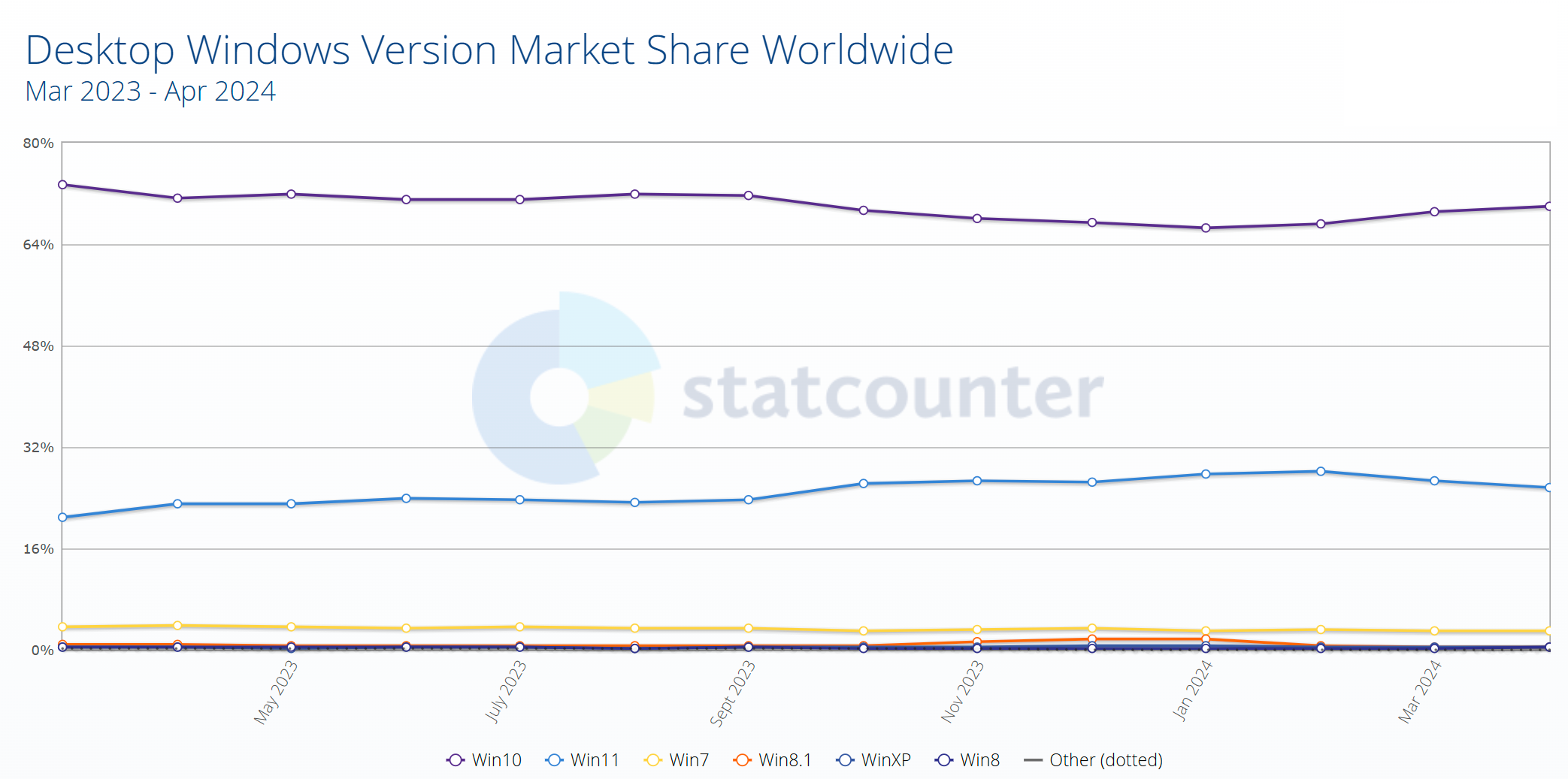A hot potato: Despite Windows 10’s global user base remaining larger than Windows 11 by a wide margin, AMD is reportedly set to stop providing drivers for the older OS starting with its Strix Point APUs. It comes as Team Red, like every other company, champions itself as an investor in all things AI, hence it favoring Windows 11 over 10. There’s also the fact that Microsoft will end support for Windows 10 in 2025.
The report comes via a Weibo post from someone said to be Lenovo’s China manager. The person claims that AMD’s Zen 5 CPUs will feature around a 10% IPC increase, while also mentioning that starting with the Strix Point APUs, AMD will stop providing Windows 10 drivers.
Statcounter’s latest report earlier this month showed that Windows 11’s global user share had fallen for the second month in a row, down to around 26%, while Windows 10 climbed back to almost 70%.

But it seems that the greater number of users doesn’t matter to AMD, and it’s probably due to its unrelenting focus on AI. It was recently reported that the company is preparing a new naming scheme for its Zen 5-based mobile CPUs that will include the term “AI” in the very lengthy names. Asus’s upcoming VivoBook S16 laptops, for example, are said to be powered by the AMD Ryzen AI 9 HX 170.
The Strix Point chips, due for launch in 2024, come with the latest integrated XDNA 2 NPU for native AI tasks. Combined with the integrated GPU, the APU will offer up to 77 TOPs of local AI processing.
Accessing all the extra AI smarts baked into Strix Point will require Windows 11, which receives more AI/Copilot-based features and tools with virtually every update.
While dropping Windows 10 drivers because there are more AI features coming to Windows 11 will doubtlessly annoy many people, there is a more understandable reason behind AMD’s decision: Microsoft is ending Windows 10 (Version 22H2) support on October 14, 2025. Organizations that want to continue using the OS after this date will have the option of enrolling their PCs into a paid Extended Security Updates (ESU) subscription, but it’s not cheap: $61 per device for the first year, $122 in the second year and $244 in the third.
Further illustrating how much AMD is trying to escape from Nvidia’s AI shadow, the company recently wrote a blog post on 55 years of innovation at AMD – it mentioned “AI” 23 times.

